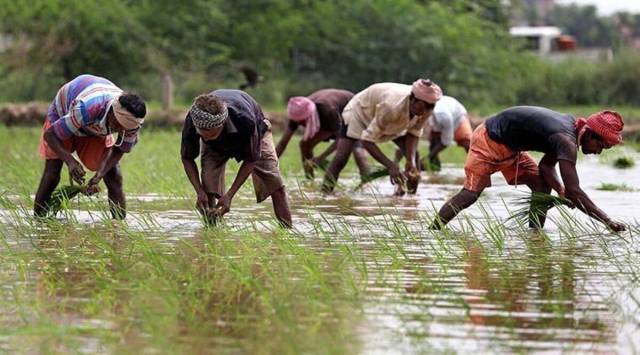WITH THE demand for foreign planting materials of fruits like apple, avocado and blueberry rising over the years, the Centre plans to set up 10 ‘Clean Plant Centres’, on the lines of those in developed countries such as the US, Netherlands and Israel, to boost domestic production of the selected crops.
These centers will be set up under the ‘Atmanirbhar Clean Plant Program’, which was announced by Finance Minister Nirmala Sitharaman in the Union Budget 2023-24.

“The concept of Clean Plant Centres is unique in itself and does not exist in India,” said a source at the Ministry of Agriculture and Farmers Welfare.
Story continues below this ad
The source said the 10 centres will be established for fruit crops like apple, walnut, almond, grapes, mango, pomegranate, among others, with an overall budget of Rs 2,200 crore in the next seven years till 2030.
Highlighting the need for the programme, the source said it is very difficult to get disease-free and genuine planting materials for horticultural crops in India. The process of importing plants is very cumbersome, as the imported plants must be kept in quarantine for two years. After the establishment of the Clean Plant Centres, this period will be reduced to six months, the source said. The Clean Plant Centres will provide services of disease diagnostic, therapeutics, multiplying of plants and generation of mother plants, the source added.
The centres will be fully funded by the Centre. It will be implemented in a PPP mode in partnership with research organisations, agriculture universities and private sector partners, the source said, adding that the National Horticulture Board (NHB) will anchor the clean plant programme.
The demand for imported planting material of various fruit plants has risen sharply over the years. According to a source, the permissions given by the EXIM committee for import of planting material of fruits during 2018-2020 show that in 2018, 21.44 lakh apple plants were imported, which increased to 49.57 lakh in 2020.
Story continues below this ad
There is also a jump in the number of avocado plants import permissions. In 2018, permission for import of 1,000 avocado plants was given, which increased to 26,500 in 2020. Similarly, the number of blueberry plants allowed for import has increased from 1.55 lakh in 2018 to 4.35 lakh during 2020, the source said.
Besides, fruit plants of banana, date palm, kiwi, pomegranate, raspberry, strawberry, walnut, winegrape, grape, guava, olive, peach, pear and plum plants are also being imported in the country, the source added.










